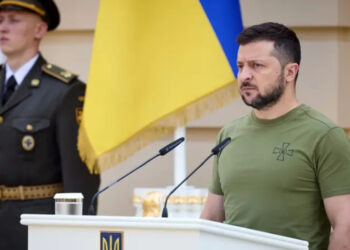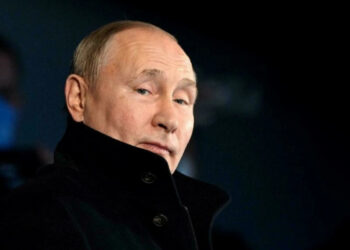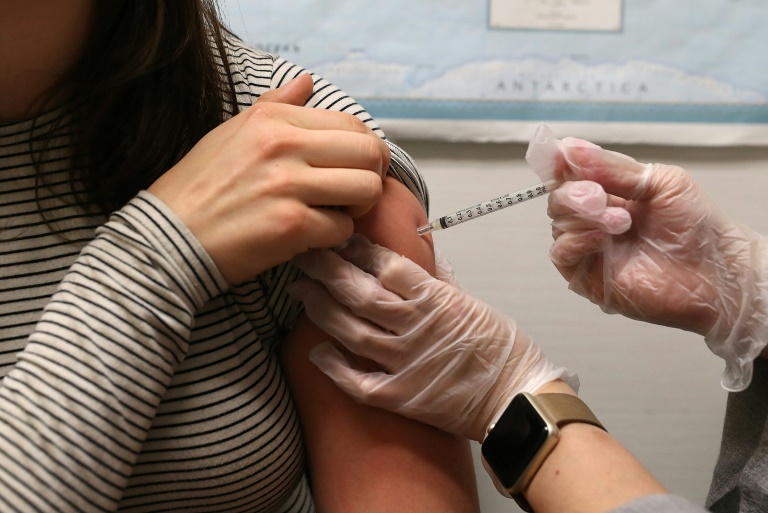What happens if you mix nationalism on steroids with aggressive male chauvinism in a country tightly gripped by a “besieged fortress” mentality?
The majority of us would probably agree that the result of such a hypothetical exercise will definitely not be positive. If you guessed that this combination will get you a new toxic subculture that gained quick online popularity on Russian social networks last year, you were correct.
Male State
As it turns out, this is not just an exercise for the imagination, but rather a close description of the members-only Russian online misogynic community Male State. In a short time, the group grew to over 150,000 members with more than 25 local and foreign branches. The community is inspired by a self-proclaimed “national patriarchy” ideology, that calls for the abolishment of gender equality, an aggressive pushback of “femino-fascism,” and the “restoration” of male dominance in all spheres of Russian public life.
The group was founded in 2016 but gained visibility and traction during and after the 2018 World Cup in Russia. It has attracted public and legal scrutiny due to the initiative of its founder, 28-year-old fitness instructor and blogger Vladislav Pozdnyakov, to establish an online group dedicated to collecting “compromising” photos and videos of Russian women seen with foreign fans visiting the World Cup.
Beyond collecting “incriminating” evidence of “sexual decadence” during the World Cup, founder Pozdnyakov and his collaborators were asking Russian women to send them private photos. They would then share the pictures within the group to publicly shame and harass these females.
Virtual Moral Police
In essence, the members of the Male State were acting as virtual moral police, by harassing women and enforcing their understanding of female monogamy and prevention of liaisons between Russian women and foreigners, especially via interracial relationships.
The members do this in name of preservation of Russian “traditional morals, traditional values, and moral principles.” The actions are a continuation of the parliament’s families committee chairwoman’s beliefs, who appealed to Russian women to refuse intimacy with foreigners during the World Cup, in an attempt to avoid a new generation of “children of the Festival,” referring to interracial children born after the 1957 Moscow Youth Festival.
An article published in May by the Moscow-based daily Moskovskij Komsomolets is also quite telling about the features of this so-called ideology. The piece is offensively titled “Time of Harlots: Russian women during the World Cup shame themselves and the country” and served as a sort of manifesto for Male State.
Ironically, the enforcers of morality and purity themselves are apparently not very fond of traditional marriage and actively encourage the membership to avoid stable relationships.
Unfortunately, the concept of virtual moral police designed to actively harass women is not a novelty in Russia. In 2017, the now-defunct online group Carthage was executing virtual “chases” of Chechen women and girls. They did so by collecting these female’s “inappropriate” Instagram pictures (those showing uncovered body parts) via “raids” on the “sinners” that disobey strict local and religious customs. To gain maximum leverage over the victims, they were told that notifications would be sent to their older male relatives, that in a worst-case scenario could lead to honor killings.
Mobilization in Search of ‘Enemy Within’
These groups are quite illustrative of a broader trend in Russian society connected to the “besieged fortress” mentality. This mindset manifests itself in the constant search of internal “traitors” and “subversives” who undermine the traditional social foundations by engaging in intellectual or physical forms of subversion against national “purity” and “integrity.”

As the elites at the top of the Russian society are constantly busy uncovering the never-ending plots against Mother Russia, parts of the masses below antagonize them in protest. However, their peculiar kind of opposition and protest closely mirrors the paranoid strategy of the political elites them, especially when it comes to searching for “national traitors” and the “enemy within” Russia.
Youth protest subcultures, such as Male State, see themselves as engaged in simultaneous battles against the current political elite and other significant fractions of Russian society that they deem disloyal to the nation.
Disloyalty in this particular case is attributed to certain Russian women, especially the ones who do not comply with the prescribed ideal roles for loyalty. As the Russian sociologist Chernova rightfully points out, these women are labeled as treasonous because they “abuse and waste” a precious social and state resource: that of the woman’s body.
In other words, the supporters of the national patriarchy are convinced that when in times of imagined encirclement, “resources” are to be carefully guarded under strict male stewardship. Tight guardianship over these precious collective resources guarantees present social survival and eventual future national prosperity.
Online and Offline Action
In such communities, the militarized mentality of constant mobilization also manifests itself in their organizational structure and activities. Male State, for example, organized itself geographically in regional branches, but also in rapid reaction platoons for exercising collective online mobbing to further their agenda. These platoons were engaged in a primitive form of information warfare against female targets to exercise sufficient psychological pressure in an attempt to modify their online and offline behavior.
Unsurprisingly, part of the Male State membership has shown interest in maintaining physical fitness and acquiring hand combat and shooting skills for their offline encounters. They were unable to utilize these skills frequently, as only several local branches were reported to have planned or executed actual physical encounters against people with non-Slavic appearances or members of rival popular youth subculture АУЕ (Russian abbreviation for ‘convict’s unified codex’). АУЕ glorifies a Soviet-style thief-in-law kind of behavior and lifestyle. Nevertheless, considering Male State’s membership size and virtual activities, the potential for offline action is definitely present.
Virtual Pseudo-Tribes
Russian authorities have marked out both Male State and АУЕ as possible national security concerns and both have been subject of FSB interventions as they have exhibited their growth and harm potential in a rather daring manner.
Both youth subcultures have exhibited attitudinal and organizational features that bear a certain resemblance to what sociologists and criminologists call small “warrior alliances” structured along patrimonial lines and sharing “tribal loyalties and pseudo kinship obligations.”
These communities could probably best be described as “virtual pseudo-tribes” bonded by shared adoration for hierarchy, hyper-masculinity, and a sense of belonging under strong male authority.
In sum, the rapid rise, proliferation, and persistence of toxic subcultures such as Male State illustrates rather well some of the most paradoxical features of the psychological climate within certain quarters of the “besieged fortress” and its controversial non-elite level defenders.
Disclaimer: The views and opinions expressed here are those of the author and do not necessarily reflect the editorial position of The Globe Post.





















